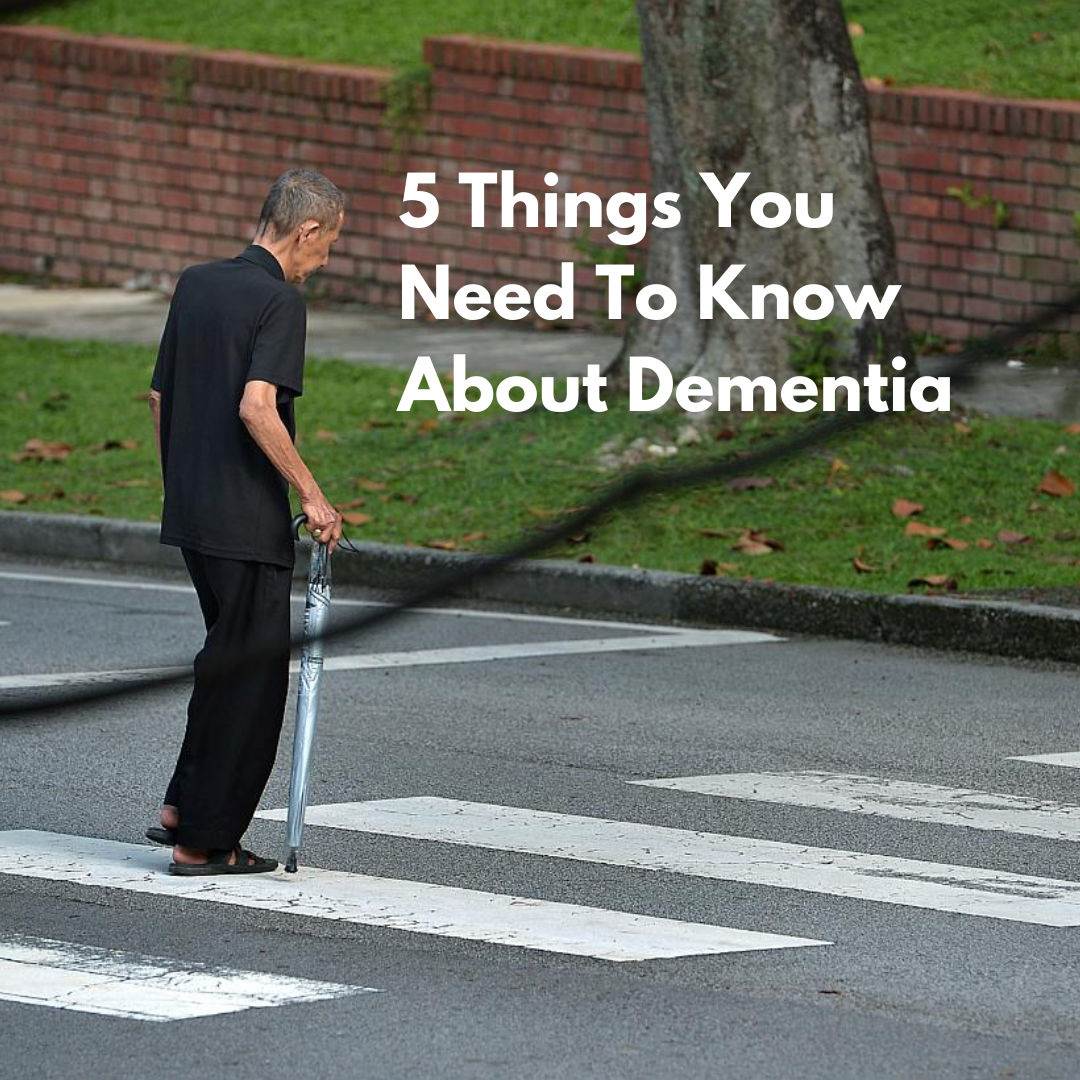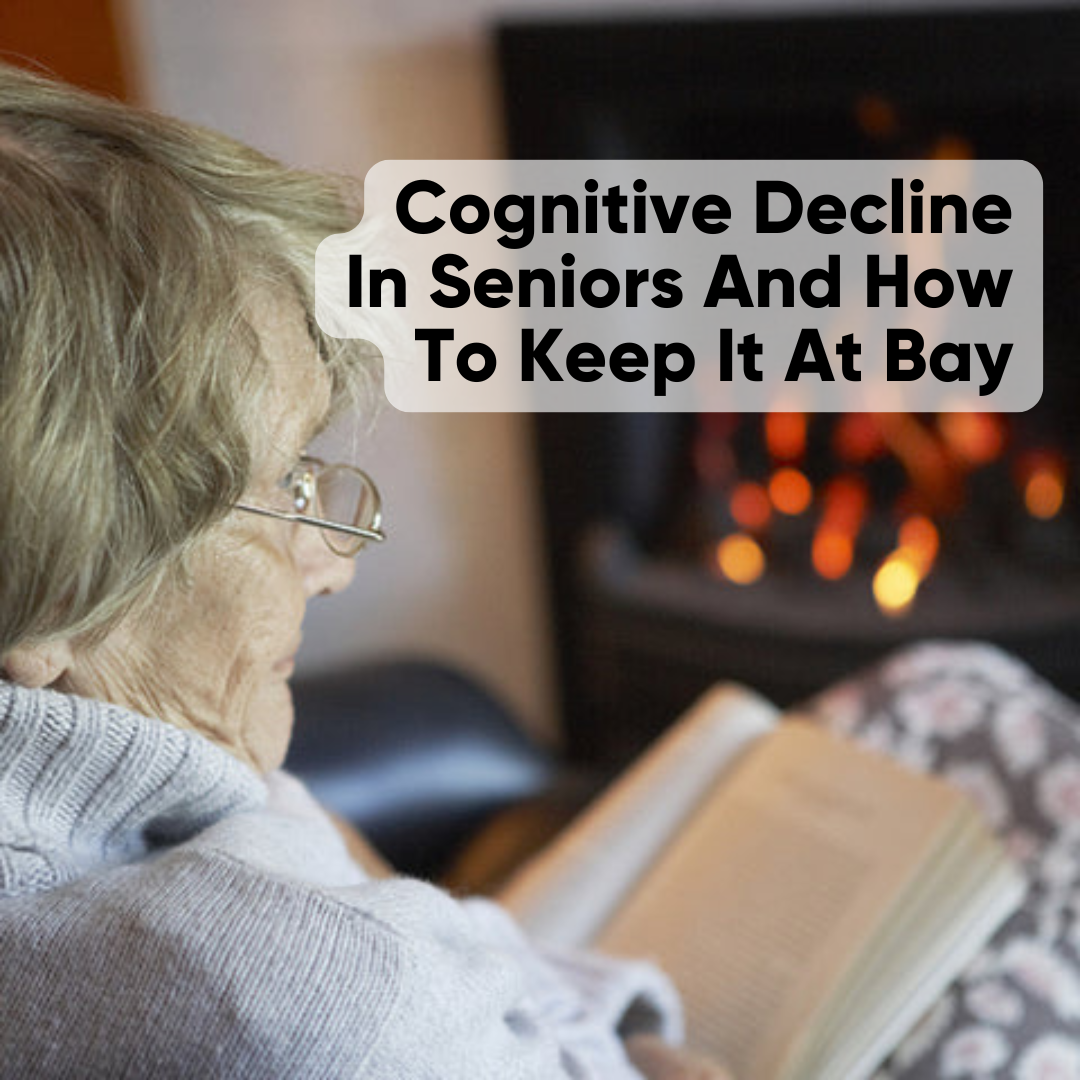Free SG local shipping for orders over $150. Express shipping options also available.
Menu
-
- Bestsellers
-
Mobility
-
Bathroom
-
Bedroom
-
Daily Living
-
About Us
-
- +65-8657-1657
- Contact Us
- Testimonials
- Product Reviews
- FAQs
- Login

Free SG local shipping for orders over $150. Express shipping options also available.
Add description, images, menus and links to your mega menu
A column with no settings can be used as a spacer
Link to your collections, sales and even external links
Add up to five columns
Add description, images, menus and links to your mega menu
A column with no settings can be used as a spacer
Link to your collections, sales and even external links
Add up to five columns
5 Things You Need To Know About Dementia
July 09, 2021 3 min read

1. What is Dementia?
Dementia is a general term for a decline in mental ability that interferes with a person's daily life. It is not a disease, but a syndrome in which there is a deterioration in cognitive functions (memory, thinking, orientation, comprehension, judgement, the ability to perform everyday tasks) and a loss of behavioural abilities (increased apathy and indifference).
Dementia is becoming increasingly common. It affects 1 in 10 Singaporeans aged above 60 and half of those above 85. Worryingly, early onset dementia is also on the rise. There is an increasing trend of people in their 40s and 50s being diagnosed with the condition.
There are over 400 types of dementia, with Alzheimer’s Disease making up 60 to 80% of all cases. Other common forms of Dementia include Vascular dementia, caused by strokes which disrupt blood circulation to the brain, and Parkinson’s Disease.
2. Symptoms
Dementia affects each person differently. This depends on the impact of the disease and the person’s personality before the condition. Here are some early symptoms to look out for:

3. Stages of Dementia
The signs and symptoms of dementia can be understood in 3 stages. However, note that this is a general guide as it is difficult to categorise them into 3 distinct stages. Symptoms vary depending on the individual and type of dementia.

Persons with Dementia may be disoriented when they wake up, especially in the night. Consider our Bed Rails which can help prevent them from falling from the bed.

Stander EZ Adjust Bed Rail For Fall Prevention
Especially in the later stages of dementia, the individual may experience difficulty in functions like bowel and bladder control. Consider purchasing commodes and place them beside the bed to limit the distance that they need to take to get to the toilet.

HappyBath 3-in-1 Deluxe Aluminium Commode Chair
4. Prevention measures
Even though the cause of dementia still remains unknown, there are certain steps we can take to improve our overall health that can help to prevent dementia.
Regular exercise:
Staying active can reduce the risk of dementia and slow the progression of cognitive conditions. Try out aerobic exercises such as Tai Chi, running, yoga, dancing and pilates to improve your heart and circulatory system.
Exercise Products can help to build strength, balance and flexibility, which in turn, enables seniors to stay agile.
Adopt a healthy diet:
Proper nutrition can help to ease behavioural symptoms. Generally, a balanced diet low in sugar and saturated fat, and high in omega fats and vitamins can help to prevent dementia.
Set aside time to relax:
Persistent stress and anxiety increases the likelihood of dementia. Set aside time to unwind, try meditating, hang out with your friends and family and do something you enjoy to lower your stress levels.
Get sufficient and quality sleep:
Poor sleep increases the buildup of proteins in the brain that can lead to loss of memory and Alzheimer’s. Establish and commit to a regular bedtime if you have poor sleeping habits.
5. Treatment
There is currently still no treatment to cure dementia. However, there are ways to manage the symptoms of dementia and slow its progressive cause.
Medication:
Medication can help with symptom management to slow down the progression of dementia. It can also help with other issues that arise because of dementia such as depression and irritability.
Activities which stimulate the mind:
Maintaining a healthy and engaged mind helps to delay declines in our cognitive functions. Try out puzzles, riddles and play games to help to keep the mind active. View our dementia activities HERE.
Therapy:
Reminiscence therapy and cognitive stimulation therapy can help to jolt the memory of dementia patients. Bringing up past memories, playing their favourite music and engaging in activities they used to enjoy can make them happy and improve their quality of life. Learn to make a dementia memory kit HERE.
Lifestyle changes:
Make lifestyle changes by following the prevention measures above. Regular exercise and sufficient sleep can help to relieve stress and ease behavioural symptoms, slowing down the progression of the condition.
Leave a comment
Comments will be approved before showing up.
Also in Health

Why You Should Consider Having an AED at Home
March 11, 2025 2 min read
Sudden cardiac arrest (SCA) is a leading cause of death worldwide, often striking without warning. While waiting for emergency responders, every second counts, and having an Automated External Defibrillator (AED) at home could mean the difference between life and death.

